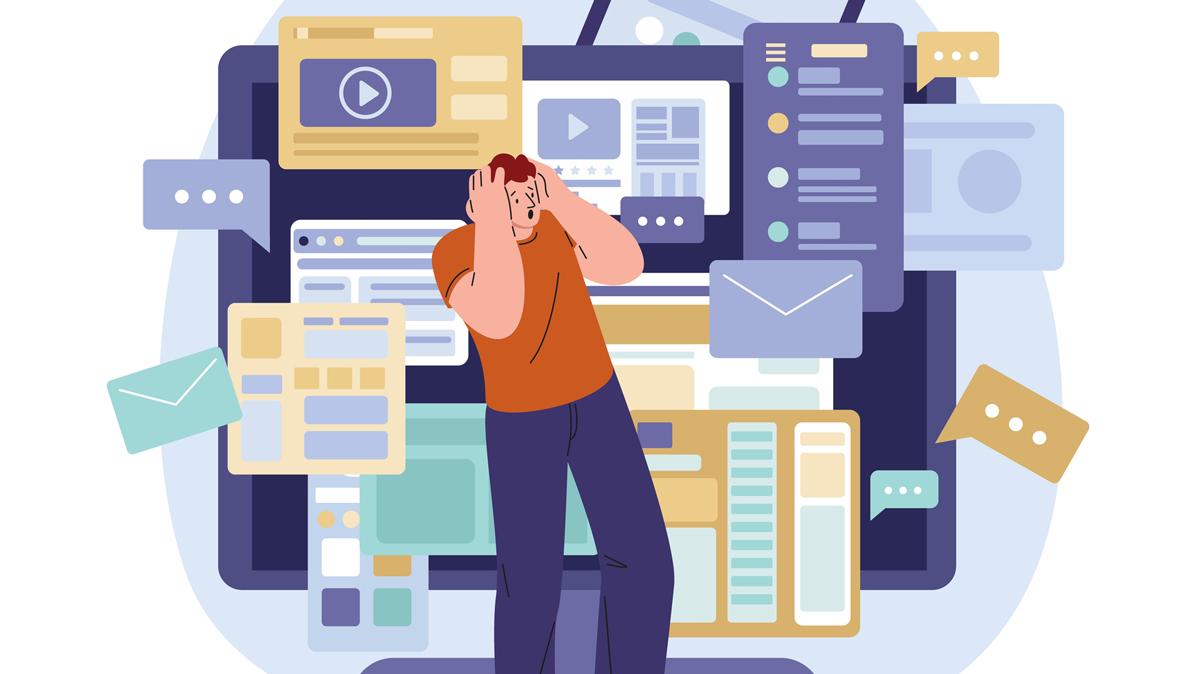The growing burden of misinformation: Patients left wondering where to turn for trusted insights and support

It’s no secret that challenges related to misinformation are rising, as more people rely on personalised news feeds and non-traditional information channels across the internet and social media, rather than established medical sources.
AI and loosening regulations being driven by some of the biggest names in technology leave many consumers wondering what’s real and what’s not.
The impact of health misinformation
Health misinformation is not just inconvenient; it poses a serious threat to public health. According to former Surgeon General Vivek Murthy, “Health misinformation can cause confusion, sow mistrust, harm people’s health, and undermine public health efforts.” Experts echo this sentiment, warning that misinformation can lead individuals to make poorly informed decisions, distort public opinion, and diminish confidence in institutions.
The United States has the second-highest rate of misinformation of any country, behind India. This alarming trend has significant consequences: over 6,000 people were hospitalised due to misinformation related to the pandemic in the first three months of 2020 alone. Medical misinformation surrounding alternative remedies has also resulted in a higher mortality rate for cancer patients and a decrease in childhood vaccination rates, putting communities at risk of preventable diseases. These stark examples underscore misinformation's profound impact on public health and patient outcomes, highlighting the urgent need for reliable and accurate information in healthcare.
Navigating AI’s impact: The blurred lines of health information online
While AI holds promise in many aspects of healthcare, it has also blurred the lines between reliable and unreliable information. Often driven by algorithms prioritising engagement over accuracy, online platforms can inadvertently elevate misinformation. Patients, particularly those with chronic diseases, are among the most vulnerable to health misinformation. A recent analysis of 500 TikTok videos tagged with #mentalhealth or #mentalhealthtips showed that 80% contained misleading content, underscoring the widespread impact of misinformation on social media.
The power of human connection
While pharmaceutical and healthcare companies increasingly develop technologies to transform patients from passive recipients into active participants in their care, a critical question remains: Where can patients find reliable health information when medical professionals are overwhelmed and unable to fill crucial knowledge gaps?
Human connection becomes a powerful antidote in this era of uncertainty and misinformation. Meaningful interactions with others can transform fear, uncertainty, and doubt into the confidence and clarity patients need to navigate their health journeys effectively. But what does this human connection look like in practice? Let’s explore two approaches leveraging human connection to combat misinformation: peer-to-patient platforms and peer-to-peer communities.
Peer-to-patient platforms: Structured support and validated information
Peer-to-patient platforms connect patients with trained guides who provide one-on-one support and encouragement, addressing the emotional barriers that often lead to medication non-adherence. Enhancing human interaction with technology provides insight and accuracy into programs with up-to-date information backed by medical, legal, and regulatory (MLR) approved content. This approach helps patients navigate their health journeys confidently and improves long-term therapy success.
Peer-to-patient platforms can be effective in delivering validated information from trusted sources. A recent study showcased that layperson-led calls achieved a significant 0.7% A1c reduction in people with diabetes, proving the power of empathy in care.
Peer-to-peer communities: Cultivating support and sharing experiences
Patient communities offer a different approach, focusing on carefully cultivated peer-to-peer support, rather than clinical oversight. These communities implement thoughtful moderation practices to maintain quality conversations while encouraging patients to share experiences and knowledge.
A unique approach is taken to maintain quality and combat misinformation in patient communities. Communities are intentionally built with strong pro-science values from the ground up. The team carefully seeds these communities with trusted members who help establish norms of evidence-based discussion and mutual respect. Instead of simply removing incorrect information, respectful peer discussion is encouraged, allowing everyone to learn together. This approach creates a trusted space where patients feel comfortable sharing while maintaining high-quality health conversations that benefit all members.
The role of pharmaceutical companies
The growing burden of misinformation is a complex issue that demands a direct-to-patient channel through trusted sources. By understanding the differences between peer-to-patient platforms and peer-to-peer communities, stakeholders in healthcare can better support patients in their health journeys.
While peer-to-patient platforms typically fall into the patient onboarding workflows offering reinforcement support, peer-to-peer communities are platforms patients actively seek out for ongoing guidance. These approaches can work complementarily and sequentially — patients might first engage with structured peer-to-patient support during initial diagnosis or treatment, then transition to peer-to-peer communities for long-term connection and evolving information needs. Both models offer valuable resources that complement traditional healthcare services, providing reliable information and emotional support throughout different stages of the patient journey.
Pharmaceutical companies have a unique opportunity to empower patients by investing in and promoting these platforms. By supporting trusted peer-to-patient interactions and peer-to-peer communities, they can help mitigate the harmful effects of misinformation. This investment benefits patients and strengthens the healthcare ecosystem by promoting accurate information and fostering a culture of support and collaboration.
In this era of uncertainty, it is crucial to empower patients with the tools and resources they need to navigate the complex health information landscape. By fostering trusted human connections, we can replace fear, uncertainty, and doubt with confidence and clarity, ensuring patients have access to accurate and reliable health information.
About the authors
 Jennifer Butler, chief commercial officer at Pleio, brings more than 20 years of marketing and management consulting experience with focus in healthcare. Butler is passionate about improving patient experiences to access healthcare. She has worked with patient engagement solutions across the healthcare ecosystem to empower patients through their healthcare journeys. She has held executive positions in digital health companies, focusing on patient engagement, and accelerated their go-to-market strategies with measurable outcomes. Prior positions include overseeing member experience and marketing at Tufts Health Plan and working for seven years at Deloitte Consulting. Butler earned her MBA from Boston University and AB from Bowdoin College.
Jennifer Butler, chief commercial officer at Pleio, brings more than 20 years of marketing and management consulting experience with focus in healthcare. Butler is passionate about improving patient experiences to access healthcare. She has worked with patient engagement solutions across the healthcare ecosystem to empower patients through their healthcare journeys. She has held executive positions in digital health companies, focusing on patient engagement, and accelerated their go-to-market strategies with measurable outcomes. Prior positions include overseeing member experience and marketing at Tufts Health Plan and working for seven years at Deloitte Consulting. Butler earned her MBA from Boston University and AB from Bowdoin College.
 Kathryn Burn, CEO of Smart Patients, leads the company's mission to create safe, high-quality peer-to-peer communities where patients and caregivers can share knowledge and support each other while maintaining scientific integrity in health discussions.
Kathryn Burn, CEO of Smart Patients, leads the company's mission to create safe, high-quality peer-to-peer communities where patients and caregivers can share knowledge and support each other while maintaining scientific integrity in health discussions.











